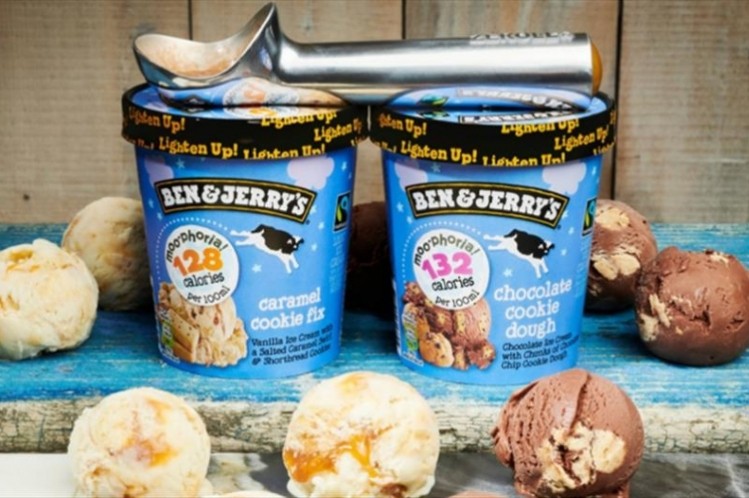Unilever targets €1bn sales from dairy and meat alternatives

The growth will be driven by the roll-out of The Vegetarian Butcher as well as increasing vegan alternatives from brands including Hellmann’s, Magnum and Wall’s.
The target is part of Unilever’s ‘Future Foods’ ambition, launched globally with two key objectives: to help people transition towards healthier diets and to help reduce the environmental impact of the global food chain.
Unilever, which also makes Ben & Jerry’s, has also committed to halve food waste in its direct global operations from factory to shelf by 2025 – five years earlier than previously committed; double the number of products delivering positive nutrition globally by 2025 – defined as products containing impactful amounts of vegetables, fruits, proteins, or micronutrients like vitamins, zinc, iron and iodine; and continue lowering calorie, salt and sugar levels across products.
It said 85% of Unilever’s global foods portfolio will help consumers reduce their salt intake to no more than 5g per day, by 2022, and 95% of Unilever’s packaged ice cream will not contain more than 22g of total sugar, and 250 Kcal per serving, by 2025.
This is in addition to the company’s children’s ice creams, which have been capped at 110 kcal since 2014.
The company has also previously committed to halve food waste in its operations as part of Courtauld 2025 and the Food Waste Reduction Roadmap.
Hanneke Faber, president of Unilever’s Foods & Refreshment Division, said, “As one of the world’s largest food companies, we have a critical role to play in helping to transform the global food system. It’s not up to us to decide for people what they want to eat, but it is up to us to make healthier and plant-based options accessible to all. These are bold, stretching targets which demonstrate our commitment to being a force for good.
“It is widely recognized that the current global food system is inequitable and inefficient. One billion people around the world are hungry while two billion are obese or overweight. One third of all food produced is thrown away. And animal agriculture is the second largest contributor to greenhouse gas emissions after fossil fuels and a leading cause of deforestation, water and air pollution and biodiversity loss.”
The 2019 EAT-Lancet report showed that a diet rich in plant-based foods and with less animal-sourced foods offer both health and environmental benefits.
Andre Burger, vice president of Foods and Refreshment for the UK & Ireland, said, “We are committed to playing our part in helping people make food choices that are better for them and better for the planet, and we all have a part to play in ensuring our food system is sustainable into the future. I hope these stretching global targets mean Unilever can play a meaningful part in making that happen. In the UK & Ireland we’ve already started to make headway on food waste and carbon reduction as part of the 2025 Courtauld Commitments and are already making progress on sugar and salt reduction in our products.”
Liz Goodwin, Senior Fellow and director, Food Loss And Waste at World Resources Institute, said food loss and waste have massive impacts in terms of cost to the global economy, the environment and society.
“We know that food loss and waste contributes about 8% of global greenhouse emissions as well as wasting the land and water used in production of food. We need as many companies as possible to step up and prioritize the issue of food loss and waste and take action to reduce it. It is great to see Unilever showing this sort of leadership. Given the size and reach of Unilever, their commitment to halve food loss and waste across their global operations will undoubtedly lead others to take action as well.”
In 2019, Unilever made an €85m ($100m) investment in ‘The Hive’, a foods innovation center at Wageningen University in the Netherlands to support research into plant-based ingredients and meat alternatives, efficient crops, sustainable food packaging and nutritious food.
The Foods & Refreshment Division’s targets also support Unilever’s global commitments to achieve a deforestation-free supply chain by 2023; invest €1bn ($1.18bn) in a new Climate & Nature Fund; and achieve net-zero emissions for all products by 2039.
The company has also pledged to ensure 100% of its plastic packaging is reusable, recyclable, or compostable by 2025.
Ben & Jerry’s partners with Fairtrade on living incomes for cocoa farmers
In other news from the company, cocoa farmers in Côte d’Ivoire are set to earn higher prices for their beans, as Ben & Jerry’s ramps up its living income approach for farmers, in partnership with Fairtrade.
From October 2020 onwards, around 5,000 Fairtrade cocoa farmers in Ben & Jerry’s supply chain will receive approximately an additional $600,000 over the next year. This amount is on top of the annual Fairtrade Premium of around $970,000 and the Ivorian government’s minimum price for cocoa that all companies are required to pay.
The higher prices Ben & Jerry’s will be paying are the latest step in a package of living income interventions that they have implemented together with Fairtrade since 2015. These activities include productivity, diversification and cooperative strengthening, which together support a living income strategy for the future. The higher prices will be monitored through partners on the ground to understand exactly how they contribute towards a sustainable livelihood for farmers.
Ben & Jerry’s global values-led sourcing manager Cheryl Pinto said, “Starting with the cocoa in our chocolate ice cream mix, we’re working towards the Fairtrade Living Income Reference Price for cocoa farmers, and this is the beginning. We are exploring living incomes in our other global supply chains, too.”
Ben & Jerry’s purchases across all commodities have generated $3.6m in Fairtrade Premiums in 2019 for farming communities to spend as they choose. Many have funded schools, and invested in climate resilience and local infrastructure.
Louisa Cox, Fairtrade’s director of impact said, “It’s complex work to advance towards a living income, but both organizations are committed to this vision. Ben & Jerry’s recognizes the role of business in addressing the challenges in the cocoa sector and this commitment sets a great example for other companies to follow.”






